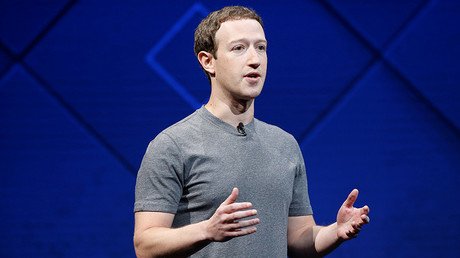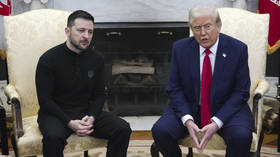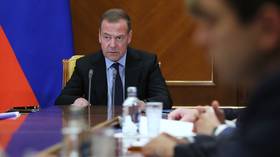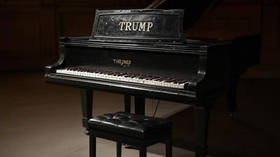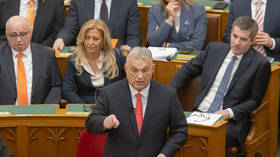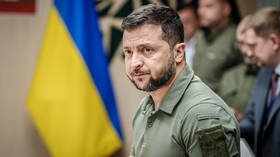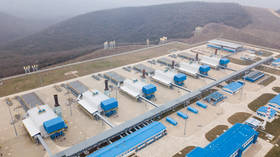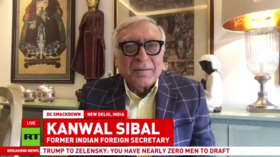Zuckerberg apologizes for “offensive” VR tour of flooded Puerto Rico
Facebook’s founder and CEO Mark Zuckerberg has apologized after his livestreamed VR tour of Puerto Rico resulted in an online backlash.
Zuckerberg used a virtual-reality avatar to tour the hurricane devastated island of Puerto Rico, in a demonstration of the company’s new VR platform.
“Let’s go quickly and teleport there,” the video shows Zuckerberg telling his VR chief Rachel Franklin, as they both use an Oculus Rift device. “Now we are in a 360 video in Puerto Rico. You can get a sense of… we are on a bridge here, it is flooded, you can get a sense of the damage that the hurricanes have done.”
The 360-degree video came from NPR documenting the aftermath of Hurricane Maria on the island.
Against a backdrop of what looks like a family wringing out water from their possessions, Zuckerberg extols the magic of Virtual Reality because “you can get the feeling that you are really in a place.”
The scene changes to show a flooded street.
“It feels like we are really in Puerto Rico, it is a tough place to get to and people are really suffering from the hurricanes,” said Zuckerberg again. In reality, however, the flooded streets are full of sewage and therefore very dangerous to public health.
The stunt resulted in a backlash with people commenting that they were in Puerto Rico and had experienced the devastation firsthand.
Some Facebook users said that a hurricane struck-nation was a poor choice of location to show off Facebook’s new tech, while others suggested that the animated characters were a distraction from the discussion.
Zuckerberg later replied to comments on his Facebook page apologizing for any offense caused, explaining that his goal was to raise awareness.
He also admitted that the use of cartoon characters to portray a sense of empathy regarding a disaster situation was not effective.
After the tour Zuckerberg and his colleague previewed the Oculus Connect launch in California, which takes place Wednesday and Thursday.
He also used the opportunity to say Facebook launched a “safety check” when the hurricane hit "so people in the community could tell all their friends and loved ones they were safe.”
Despite the value of ‘safety check,’ it only works if people are connected to the internet. When Hurricane Maria made landfall in Puerto Rico on September 20, it took out the island’s entire electric grid, cutting both communications and access to drinking water.
The company activated community help “so if people could say they needed food or shelter people in the community could provide that,” Zuckerberg said, without noting that without the internet it wouldn’t work.
Facebook “did some work ourselves” and employees to help with “connectivity,” Zuckerberg said, without going into details
“Because when you are in the middle of a disaster like this it is really important that people have access to the internet, both so people can connect with friends and their family outside the disaster zone to tell them they are okay, and tell them what’s going on but it is also important when relief workers go down there that they can coordinate with each other and know where people need help,” he added.
Facebook is working with the Red Cross to use artificial intelligence to build population maps, where satellite survey of the area will show where people live and the density of the infrastructure, "to help responders figure out where people need help the most."
“We’ve tried to do this a couple of times in the past but this is an example of how you can use AI and machine learning to help out in savings people’s lives and help out in relief efforts,” Zuckerberg said.
Facebook has donated $1.5 million to the relief effort, the CEO said.
After discussing Facebook’s contributions to Puerto Rico, Zuckerberg and Franklin transported themselves to the Moon and to Zuckerberg’s living room to see his dog - all in virtual reality.
